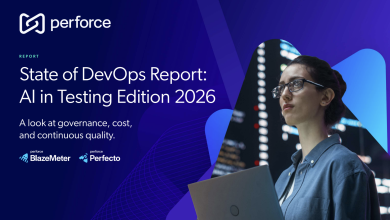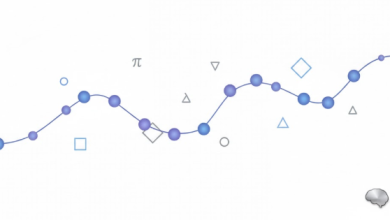
When AI came onto the scene only a few years ago it very quickly became clear it would be a huge disrupter of many industries. It showed promise for copywriting, content creation, and marketing materials, automated tasks and more.
Anyone could see that AI was set to change everything about the way we work. But what few anticipated was just how much of a disrupter it would become to the coaching industry. Surely that would be safe! Coaching is all about personal relationships, the human touch, AI can’t possibly replicate that!
Well, it turns out that not only can it support coaching, in some cases AI can replace and even do a better job than a human. AI might not mean the end of coaching, but it might be the end of coaching as we know it.
The Four Levels of Coaching Mastery: Where AI Fits In
Understanding the different levels of coaching helps us see where AI is replacing traditional methods, where it is enhancing human-led coaching, and where human expertise remains irreplaceable.
Level 1: Performance Coaching (Most at Risk of AI Replacement)
Performance based coaching is where coaching began. It started in sports where athletes had a coach to teach them how to improve their performance. This quickly moved to business and executive coaching.
This level of coaching was largely an outside in approach and is based on answering the question:
What behaviours do I need to do to get the results that I want?
For many coaches this is still their main approach. Many coach trainings and certifications still focus largely on this approach. It is largely and outside only approach.
AI’s Role and Impact on Performance-Based Coaching
AI excels at performance coaching, as it is built to track goal-setting, accountability, and productivity metrics.
- AI can automate goal-setting and action plans more efficiently than a human coach.
- AI-powered dashboards track behavioural progress with real-time insights.
- AI-generated coaching reminders and nudges enhance motivation and consistency.
Threat Level: HIGH. AI is already replacing human coaches in performance coaching, particularly in corporate, executive, and habit-tracking programs.
Human Opportunity: Coaches must move beyond structured accountability and integrate emotional intelligence, deeper mindset work, and transformation to stay competitive.
Level 2: Pattern-Based Coaching (AI as an Analytical Partner)
Pattern-Based Coaching moves beyond behaviour and explores the recurring thoughts, emotions, and internal conflicts that drive a person’s actions.
At this level, we recognize that people do not operate as a single, unified self but are instead shaped by patterns of belief, emotion, and identity that have developed over time. These patterns influence decision-making, motivation, and self-sabotage, often without conscious awareness.
We start with the fundamental premise that who we are is shaped by internal patterns, habitual ways of thinking, feeling, and reacting. Just as a person might have external roles (such as being a leader, a parent, or a creator), they also have internal roles and identities that sometimes conflict.
For example:
- A high-achiever might struggle with an internal fear of failure, leading to perfectionism and burnout.
- A visionary leader may carry a pattern of self-doubt, making it difficult to fully step into their authority.
- A creative entrepreneur might battle a scarcity mindset, causing them to undercharge or hesitate in expanding their business.
These patterns can create inner conflict, procrastination, and self-sabotage, as different aspects of a person’s identity pull them in competing directions.
This level of coaching focuses on identifying and shifting these unconscious patterns so that clients can align their thoughts, emotions, and behaviours with their true goals. AI tools, such as sentiment analysis, NLP-based self-reflection prompts, and subconscious pattern detectors, are particularly powerful here, as they help clients recognize and break free from limiting mental loops.
Pattern-based coaching is the bridge between behaviour-focused coaching and deep transformational work. It allows clients to gain awareness and control over their internal operating system, preparing them for the next level: Process-Based Coaching, where true transformation begins.
AI’s Role and Impact on Pattern–Based Coaching
AI is increasingly effective at detecting and analysing internal thought patterns, biases, and self-sabotaging behaviours through:
- Sentiment analysis that identifies negative thought loops.
- Journaling AI tools that prompt users to explore their inner conflicts.
- Conversational AI bots that help clients verbalize limiting beliefs without fear of judgment.
Threat Level: MODERATE. AI can identify unhelpful thinking patterns, but it cannot facilitate deep personal transformation on its own.
Human Opportunity: Coaches who use AI to analyse subconscious patterns faster can dedicate more session time to breakthrough work, giving them a competitive advantage.
Level 3: Process-Based Coaching (AI as a Supportive Tool, Not a Replacement)
This is where we go deep into our inner work.
Here we introduce processes, techniques and technologies that fundamentally improve us as humans. We use a range of self-improvement processes to make us better people.
This is where those parts that we have identified start to become reconciled, and more integrated. We heal the parts, and we heal the divisions between the parts. This is where those parts become whole, leading to greater wholeness and integration of the individual.
This is the realm of, healing, clearing limiting beliefs, releasing trauma. Healing is the predominant word and focus for this process-based level. Here we go inside and improve ourselves so that we can create and achieve more on the outside.
When we move into process and the depths of process, we become much more whole. We become more integrated we find we are driven from a sense of purpose rather than lack.
As we move through this level, we realise that there was never anything wrong with us. This is where we begin to recognise that there is nothing missing and we are just us. it’s this that enables us to move to the next level.
AI’s Role and Impact on Process-Based Coaching
AI is assisting in deep transformation by offering structured support through:
- Guided meditation and hypnosis script generation tailored to individual client needs.
- Behavioural pattern tracking to detect emotional shifts over time.
- Personalized cognitive reframing exercises based on NLP-driven analysis of negative self-talk.
Threat Level: LOW. AI can facilitate structured healing exercises but cannot replace intuitive coaching, deep trauma work, or higher-level emotional processing.
Human Opportunity: Coaches who integrate AI-driven insights and tools will be able to deepen their client relationships and enhance transformation.
Level 4: Presence-Based Coaching (AI Has the Least Influence Here)
Presence-Based Coaching represents the highest level of coaching mastery, where individuals move beyond self-improvement and performance into a state of deep awareness, connection, and self-transcendence. At this level, coaching is no longer about fixing, optimizing, or even transforming – it is about fully embodying wholeness and alignment with oneself and others.
Clients at this stage no longer operate from a sense of lack, struggle, or striving – they seek flow, purpose, and integration. This is the point where coaching moves beyond behaviour, beliefs, or mindset shifts and into the realm of presence, intuition, and energetic connection.
At this level:
- There is no separation, clients experience a profound connection with themselves, others, and the world around them.
- They no longer act from fear or self-doubt, instead, they operate from a space of inner peace, trust, and effortless action.
- Productivity and leadership become natural extensions of presence, driven not by external pressure but by inner clarity and aligned action.
True presence-based coaching does not impose transcendence or unity on another – it simply creates the space for it to emerge naturally. This is the paradox of this level: clients are already whole and complete, yet they continue to evolve.
A coach at this level does not push or prescribe, they hold space for deep transformation to unfold organically.
AI’s Role and Impact on Presence-Based Coaching
AI has minimal impact in presence-based coaching, which focuses on human intuition, deep connection, and self-transcendence.
Threat Level: VERY LOW. AI will never replicate true human presence, energetic mastery, or deep spiritual alignment.
Human Opportunity: This is the most AI-proof form of coaching, making it the future of high-value, human-led coaching.
Recent Research: Some Clients Perform Better with AI Coaches
Emerging research suggests that some clients actually prefer AI coaching over human coaches in certain situations.
A study published in Coaching: An International Journal of Theory, Research and Practice found that clients often feel less judged by AI coaches and are more willing to open up about personal struggles than with human coaches. [source]
Research in behavioural psychology has shown that AI-generated coaching messages in weight loss and mental health programs are just as effective as human coaching interventions in sustaining behaviour change. [source]
These findings highlight an emerging AI-driven coaching segment, where clients who fear judgment or bias in human interactions may actually thrive under AI coaching models.
The Future of AI-Powered Coaching: A New Era of Intelligent Coaching Tools
As AI continues to evolve, so too does its role in coaching. While early AI-driven coaching tools focused primarily on performance tracking and structured goal-setting, the next generation of AI coaching tools is set to revolutionize mindset transformation, emotional intelligence, and deep personal growth.
Leaders in the AI and coaching space, including researchers, developers, and coaching innovators such as Dr. Lisa Turner, are actively working on AI-driven tools designed to enhance coaching in new and transformative ways. These tools go beyond simple automation; they are being developed to actively guide individuals through cognitive shifts, emotional breakthroughs, and decision-making clarity.
Some of the most cutting-edge AI tools emerging today include:
- The Procrastination Buster – AI-powered task breakdown and motivation nudges to help individuals overcome inertia and take action effortlessly.
- The Linguistic Limiting Belief Eliminator – AI-driven Neuro-Linguistic Programming (NLP) technology that doesn’t just identify limiting beliefs, it actively dismantles and rewires them in real time.
- The Imposter Syndrome Buster – AI-generated confidence-building strategies that analyze past achievements, feedback loops, and self-perception to provide evidence-based self-assurance.
- AI Decision Assist – A powerful tool that helps individuals analyze complex choices, detect hidden biases, and gain decision-making clarity, reducing mental fatigue and hesitation.
- and transformation
- The Flow State Inducer – AI-powered mindset optimization techniques that guide users into peak performance states, helping them enter flow faster and sustain it longer.
These AI tools represent the future of coaching, a future where AI acts as a personalized, always-on coaching assistant that enhances human development in ways never before possible.
As AI continues to develop, one thing remains certain: the best coaching models will be those that integrate the precision of AI with the intuition and wisdom of human connection. The future of coaching is not just intelligent – it’s transformative.
The Ethical Dilemma: Who Programs the Ethics of AI Coaches?
As AI takes on a greater role in coaching, organizations must consider who is responsible for its ethical programming. AI coaching models learn from datasets, but what happens when bias creeps in?
Key Questions for Ethical AI Coaching:
- Who decides what “good coaching” looks like in an AI model?
- Can AI reinforce gender, racial, or socioeconomic biases in leadership coaching?
- What safeguards should exist to ensure AI-driven coaching promotes ethical leadership and fair decision-making?
To ensure AI coaching remains ethical, organizations must implement clear guidelines, diverse training data, and human oversight in AI-driven coaching programs.
AI as a Catalyst for Coaching Evolution
AI is not the end of coaching, it is the beginning of a new era. While AI is replacing structured, transactional coaching, it is also enhancing transformational and transcendent coaching by providing data-driven insights, behaviour analysis, and real-time feedback.
The real winners in the AI-coaching revolution will be those who:
- Embrace AI as a strategic ally, not a competitor
- Move beyond transactional coaching into transformational and transcendent coaching
- Integrate AI insights with deep human connection, wisdom, and ethical leadership
The future belongs to coaches who understand that AI is not here to replace them, it is here to elevate them.





